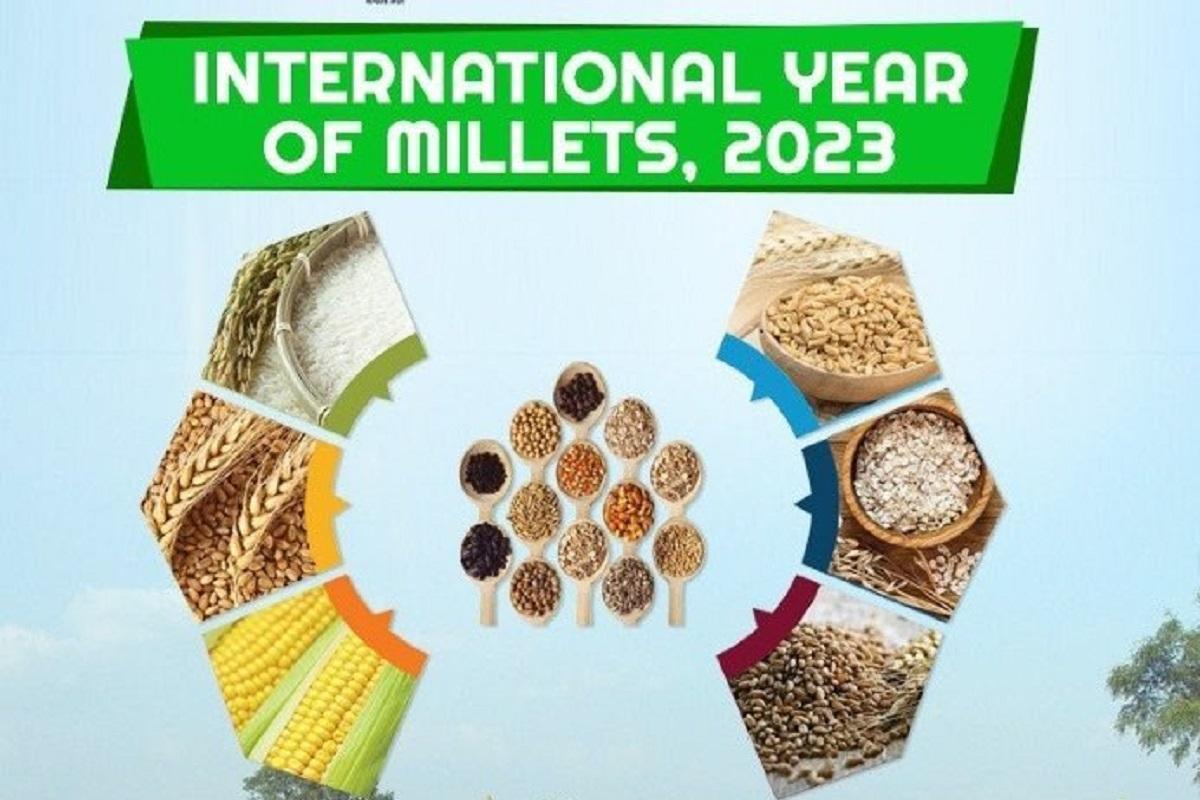The Government of India sponsored the proposal for International Year of Millets (IYM) 2023 which was accepted by the United Nations General Assembly (UNGA). The declaration has been instrumental for the Government of India to be at the forefront in celebrating the IYM. PM Narendra Modi has also shared his vision to make IYM 2023 a ‘People’s Movement’ alongside positioning India as the ‘Global Hub for Millets’.
Bank Maha Pack includes Live Batches, Test Series, Video Lectures & eBooks
International Year of millets: More About This Development:
Recognising the enormous potential of Millets, which also aligns with several UN Sustainable Development Goals (SDGs), the Government of India (GoI) has prioritized Millets. In April 2018, Millets were rebranded as “Nutri Cereals”, followed by the year 2018 being declared as the National Year of Millets, aiming at larger promotion and demand generation. The global millets market is projected to register a CAGR of 4.5% during the forecast period between 2021-2026.
On 6th December 2022, the Food and Agriculture Organization (FAO) of the United Nations, organized an opening ceremony for the International Year of Millets – 2023 at Rome, Italy. The event was attended by a delegation of senior government officials from India. Next in the series, prior to the year-long celebration of ‘International Year of Millets (IYM) 2023’, the Department of Agriculture & Farmers Welfare hosted a special ‘Millet Luncheon’ for the Members of the Parliament at the Parliament house.
Further Development Regarding This:
Among central ministries, the activities related to IYM for the month of January 2023 will be kick started by the Ministry of Sports and Youth Affairs, Government of India. The ministry has planned 15 activities over 15 days in January which include engaging sports persons, nutritionists and fitness experts through video messages, conducting webinars on millets with leading nutritionists, dieticians and elite athletes, promotion amplification through Fit India App, etc. Some of the other ministries which have planned events in January are Ministry of Food Processing Industries which will be organizing Millet Fair-cum-exhibitions in Andhra Pradesh, Bihar and Madhya Pradesh; FSSAI will organize Eat Right Melas in Punjab, Kerala and Tamil Nadu etc.
With respect to states, Chhattisgarh, Mizoram and Rajasthan have been allocated the month of January for carrying out specific activities for sensitization and promotion of IYM. The states will be conducting millet centric activities including mahotsavs/ melas and food festivals, training of farmers, awareness campaigns, workshops/ seminars, placement of hoardings and distribution of promotional material at various key locations in the state, etc. Other states that are organizing similar activities in the month of January include Maharashtra, Uttarakhand and Punjab.
What are millets:
Millet is a common term for categorising small-seeded grasses that are often called Nutri-cereals. Some of them are sorghum (jowar), pearl millet (bajra), finger millet (ragi), little millet (kutki), foxtail millet (kakun), proso millet (cheena), barnyard millet (sawa), and kodo millet (kodon). An essential staple cereal crop for millions of smallholder dryland farmers across Sub-Saharan Africa and Asia, millets offer nutrition, resilience, income and livelihood for farmers, and have multiple uses such as food, feed, fodder, biofuels and brewing.
Significance and benefits of millets:
Millets are nutritionally superior to wheat and rice owing to their higher protein levels and a more balanced amino acid profile. Millets also contain various phytochemicals which exert therapeutic properties owing to their anti-inflammatory and anti-oxidative properties. Further, besides being climate resilient, millet grains are rich sources of nutrients like carbohydrates, protein, dietary fibre, and good-quality fat; minerals like calcium, potassium, magnesium, iron, manganese, zinc and B complex vitamins. Most importantly, millet production is not dependent on the use of chemical fertilizers.
Millet Producing States:
India produces all the nine commonly known millets and is the largest producer and fifth-largest exporter of millets in the world. Most of the states in India grow one or more millet crop species. Rajasthan, Uttar Pradesh, Haryana, Gujarat, Madhya Pradesh, Maharashtra, Karnataka, Tamil Nadu, Andhra Pradesh, and Telangana are the major millets producing states.



 Indian Olympic Medal Winners List Till N...
Indian Olympic Medal Winners List Till N...
 Who is the Inventor of the Gramophone?
Who is the Inventor of the Gramophone?
 HS Dhaliwal Appointed New DGP Of Andaman...
HS Dhaliwal Appointed New DGP Of Andaman...
